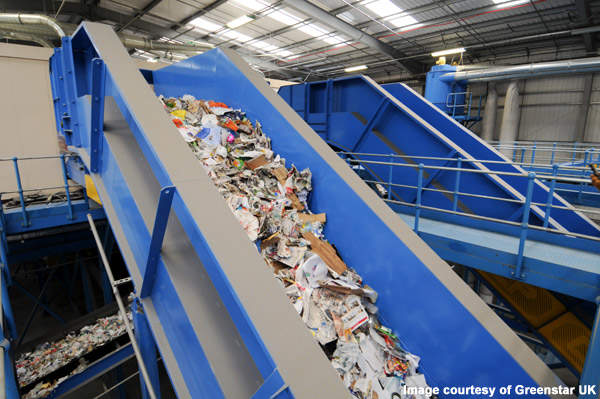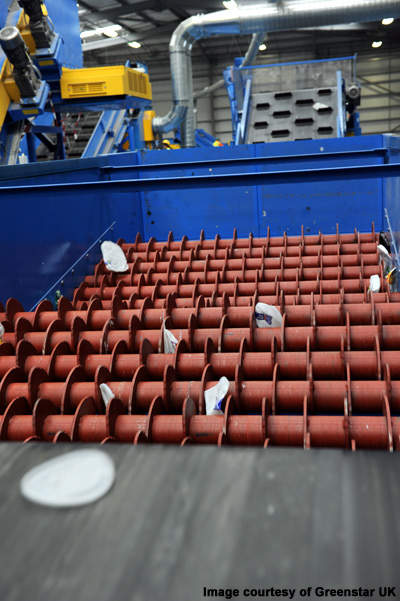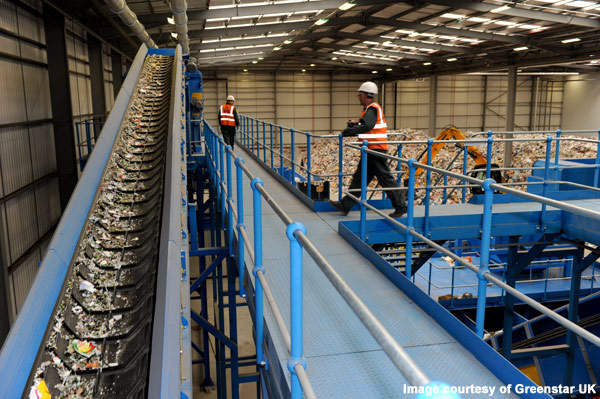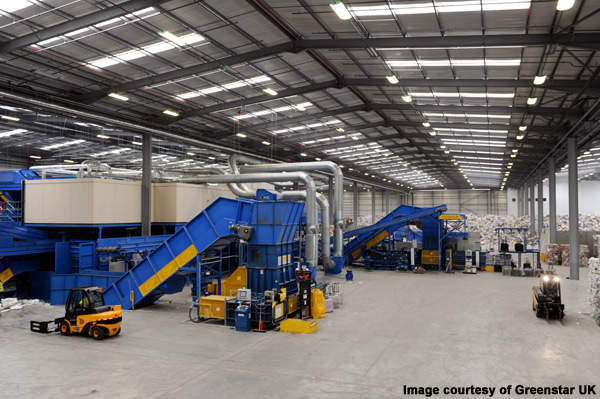Greenstar's new materials recycling facility (MRF) is located in Edmonton, London, UK. Known as Greenstar Edmonton, the facility will process about 10% of London's waste. Greenstar invested approximately £18m in the new facility. The company announced the construction of the MRF in 2008. Construction of the facility started in January 2010 and was completed in mid-May 2010. The transfer station at the facility opened earlier in October 2009.
Greenstar Edmonton occupies a 192,000ft² building in Edmonton spread over an area of nine acres. It has a capacity to handle about 350,000t of waste annually. It will also handle another 150,000t a year from its waste transfer station.
Greenstar won contracts from local authorities to process 100,000t of domestic waste annually. The company plans to secure commercial contracts as well. The Edmonton facility is expected to process about 70% domestic waste and 30% commercial waste. It will process both co-mingled and source-separated waste collected from various locations.
In June 2010, Biffa announced its decision to acquire Greenstar for £135m. The deal was approved by European Commission in August 2010. With this acquisition, Biffa has become the second-largest waste recycler in the UK.
Edmonton recycling facility process
The Edmonton facility features a dual-line system to process both domestic and commercial dry waste, ensuring the operation of at least one line if the other is down. The MRF has been constructed with a liner configuration to enable smooth flow of operations.
The facility will process waste such as paper, cardboard, plastic, metal containers, glass items and other materials. It will be capable of handling more than 30 vehicles an hour. These vehicles will bring waste from across London and tip it into a 45,000ft² processing hall.
Technology
The paper processing line of the MRF features the world's first toothed rubber belt instead of the usual sprocket and chain belt. The company plans to install optical sorting equipment which will segregate five different types of plastic for recycling.
Operators at the new MRF will be provided with wireless touch screen controllers. These systems will enable them to control every unit of the facility from any location in the site.
MRF contractors
Volkes Fitzpatrick was contracted to carry out the initial construction work on the MRF. The company created the pits for the conveyor and baler machines and completed the office fit-out. Volkes also constructed the vehicle yard, a weighbridge and a £500,000 sprinkler system. The sprinkler has the capacity to deliver 6,500l or water a minute.
Greenstar contracted CP Manufacturing to install the equipment at the MRF. CP Manufacturing worked with Ebbsfleet Engineering to assemble more than 1,600t of steelwork and processing equipment at the facility.
Engineers from Greenstar worked in partnership with CP Manufacturing's design team to develop the design of the facility. A design with linear configuration was chosen to provide additional access for maintenance. Such a design enables any one unit of the facility to be shut down for maintenance without affecting the operations of the other units.
In 2009, the first consignment of equipment in more than 70 shipping containers was delivered to the facility from the US. Another 30 consignments of push walls for the waste transfer station arrived at the site in January 2010. 60 containers of steelwork were also delivered from within the UK. Equipment installation at the facility commenced in February 2010.
Benefits for London
The Edmonton facility will help process the majority of north London's waste. The UK government has set a target of recycling 40% of domestic waste. In 2006-2007, about two million tons of household waste was produced and approximately 333,000t of dry recyclables were collected for recycling.
To achieve the 40% recycling rate, about 800,000t of waste will have to be recycled in 2010 and 900,000t in the following five years. The addition of the new MRF will help in achieving this target and safely dispose of the waste generated in the region.







